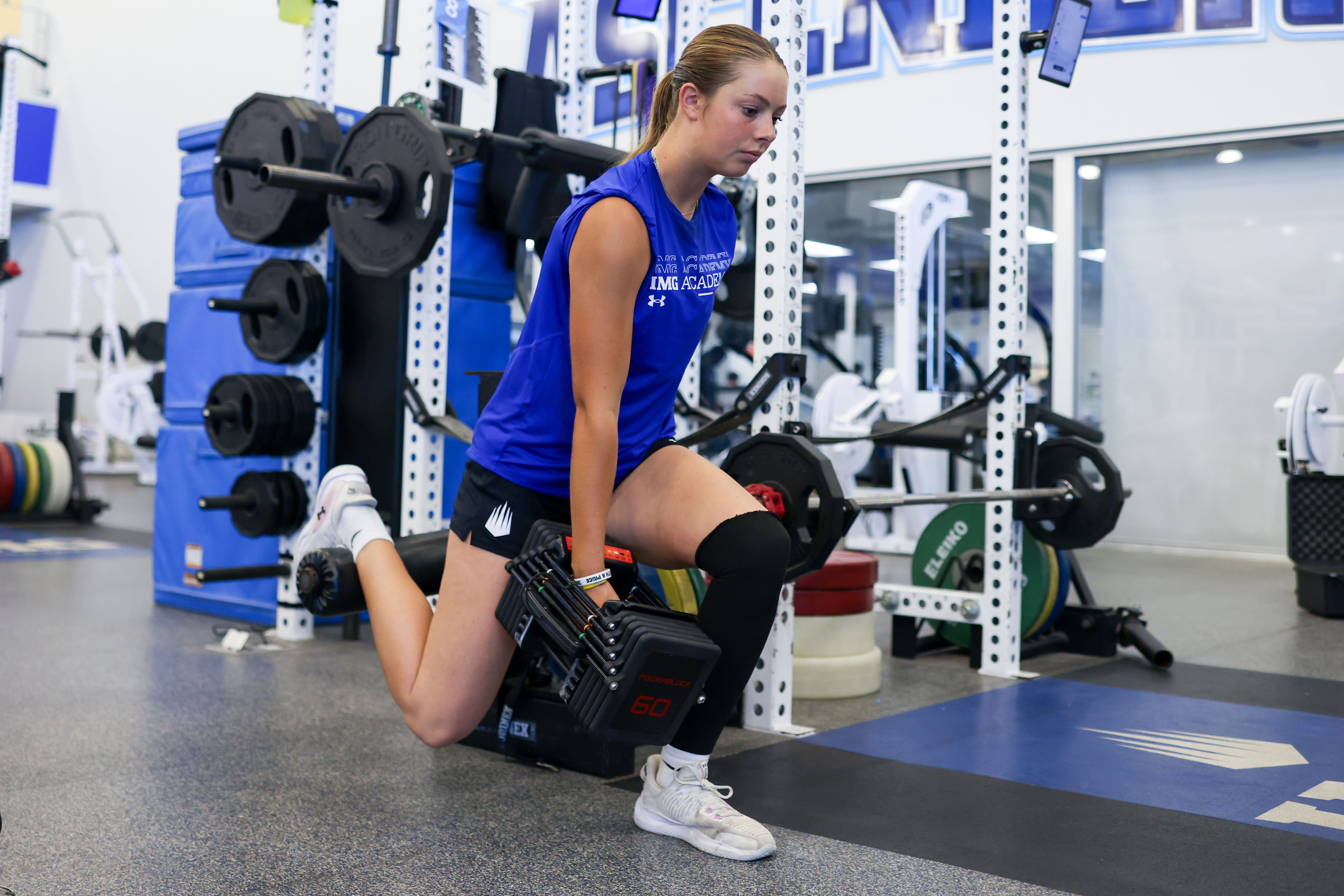How to Gain Weight Safely for Athletic Performance


For many youth athletes, gaining weight can be just as important as losing weight—especially if you’re looking to build muscle, improve strength, or compete in a physically demanding sport. However, gaining weight safely is crucial. Safe weight gain isn’t about eating anything and everything; it’s about fueling your body with the right nutrients often enough to build muscle, improve performance, and stay healthy.
If your goal is to gain weight for strength and performance, here’s how to do it the right way.
Why Safe Weight Gain Matters
Most of the time, weight gain for athletes should focus on increasing lean muscle mass, not just adding weight for the sake of it. Gaining weight too quickly or from low-nutrient foods can lead to excess body fat, sluggish performance, and increased injury risk. By following a balanced approach, you can add muscle while staying fast, strong, and explosive.
Three Key Strategies for Safe Weight Gain
1. Eat More, but Eat Smart
To gain weight, you need to eat more calories than you burn. Focus on nutrient-dense foods that provide energy, protein, and healthy fats in the right ratios to support muscle growth.
Carbohydrates for Energy: Whole grains, rice, pasta, potatoes, oats, and fruit provide fuel for training.
Protein for Muscle Growth: Lean meats, fish, eggs, and dairy help build and repair muscles.
Healthy Fats for Recovery: Avocados, nuts, seeds, olive oil, and fatty fish lower exercise-induced inflammation, support both brain health and immune health, lower injury risk, and add extra calories.
A good rule of thumb is to eat every 3-4 hours, ensuring your body has a steady supply of energy to support muscle growth.
2. Prioritize Strength Training
Gaining weight without strength training can lead to fat gain instead of muscle gain. To build muscle effectively:
Be sure to work with a qualified strength and conditioning coach for a safe, effective workout plan. Under their supervision, gradually increasing weight and resistance over time could assist in building more strength.
Strength training signals your body to use extra calories for muscle growth rather than storing them as fat if that is not your goal.
3. Stay Consistent and Hydrated
Muscle growth takes time. Be patient, stay consistent with your eating and training, and track your progress. Keeping a food and workout journal can help you stay on track.
Hydration is also key. Muscles are 75% water, and dehydration can slow muscle growth and recovery. Aim to drink at least half your body weight in ounces of water daily, and more on training days to account for sweat and additional exercise.
Common Mistakes to Avoid
Skipping Meals: If you’re not eating enough of the right foods throughout the day, you won’t gain weight—consistency is key.
Relying on Junk Food: Consuming mainly ultra-processed foods may provide easy-to-consume calories, but they won’t help you build strong, functional muscle in the long run.
Neglecting Recovery: Your muscles grow after workouts, not during. Get at least 8 hours of sleep and allow for rest days in your training schedule to provide the opportunity for muscle growth.
The Bottom Line
Safe weight gain is about fueling your body with purpose—eating enough quality foods, training effectively, and staying consistent. By following these strategies, you’ll build strength, improve performance, and gain weight the right way.
Download our Smart Weight Gain Tracker to help you plan and stay consistent on your journey.
Remember, when you stay patient, stick to your nutrition plan, and train smart, you’ll see results. Your body is your best asset—fuel it wisely and grow strong!

Chella is a Sports Performance Dietitian from Minnesota with 13 years of personal athletic experience as a competitive swimmer. She obtained a Bachelor of Science Degree in Dietetics and Dual Master of Science Degree in Exercise / Nutrition Science from North Dakota State University. While in graduate school, she conducted both sports nutrition and exercise science thesis research with the adolescent athlete population to discover best practices for optimizing muscle recovery between training sessions. Prior to IMG Academy, she gained professional work experience with the NHL Minnesota Wild, NBA Minnesota Timberwolves, Shattuck-St. Mary’s Boarding School, NFL Combine, and North Dakota State University Athletics. Most recently, she worked with ten Olympic sports teams at West Virginia University as the Assistant Director of Olympic Sports Nutrition. She is currently preparing for the exam to receive her Board Certified Specialist in Sports Dietetics credential and is a member of the Academy of Nutrition and Dietetics Sports and Human Performance Nutrition Dietetics Practice Group as well as the American Sports and Performance Dietitians Association. Chella believes that any athlete can improve their performance through nutrition optimization while still enjoying their favorite foods.
Like this article? Access more in the full resource library.


Start Achieving Your Goals With Essentials
- Unlock the full Essentials experience
- Get recommended content based on your interests
- Dive into content on mental performance, nutrition, college recruiting, sports training and so much more!